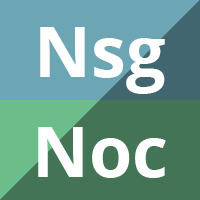Abstract
Background
High grade glioma (HGG) is an aggressive form of brain cancer. Treatment of HGG usually entails biopsy, or resection if safe, followed by radiotherapy. Temozolomide is a novel oral chemotherapy drug that penetrates into the brain and purportedly has a low incidence of adverse events.
Objectives
To assess whether temozolomide has any advantage for treating HGG in either primary or recurrent disease settings.
Search methods
The following databases were searched: CENTRAL (Issue 10, 2012), MEDLINE, EMBASE, Science Citation Index, Physician Data Query and the Meta-Register of Controlled Trials in October, 2012. Reference lists of identified studies were searched. The Journal of Neuro-Oncology and Neuro-oncology were handsearched from 1999 to 2012 including conference abstracts. We contacted neuro-oncologists regarding ongoing and unpublished trials.
Selection criteria
Randomised controlled trials (RCTs) where the interventions were the use of temozolomide during primary therapy or for recurrent disease. Comparisons included no chemotherapy, non-temozolomide chemotherapy or different dosing schedules of temozolomide. Patients included those of all ages with histologically proven HGG.
Data collection and analysis
Two review authors undertook the quality assessment and data extraction. Outcome measures included: overall survival (OS); progression-free survival (PFS); quality of life (QoL); and adverse events.
Main results
For primary therapy three RCTs were identified, enrolling a total of 745 patients, that investigated temozolomide in combination with radiotherapy versus radiotherapy alone for glioblastoma multiforme (GBM). Temozolomide increased OS (hazard ratio (HR) 0.60, 95% confidence interval (CI) 0.46 to 0.79, P value 0.0003) and increased PFS (HR 0.63, 95% CI 0.43 to 0.92, P value 0.02), when compared with radiotherapy alone, although these benefits only appear to emerge when therapy is given in both concomitant and adjuvant phases of treatment. A single RCT found that temozolomide did not have a statistically significant effect on QoL. Risk of haematological complications, fatigue and infections were increased with temozolomide.
In recurrent HGG, two RCTs enrolling 672 patients in total found that temozolomide did not increase OS compared to standard chemotherapy (HR 0.9, 95% CI 0.76 to 1.06, P value 0.2) but it did increase PFS in a subgroup analysis of grade IV GBM tumours (HR 0.68, 95% CI 0.51 to 0.90, P value 0.008). Adverse events were similar between arms.
In the elderly, 2 RCTs of 664 patients found OS and PFS was similar with temozolomide alone versus radiotherapy alone. QoL did not appear to differ between arms in a single trial but certain adverse events were significantly more common with temozolomide.
Authors’ conclusions
Temozolomide when given in both concomitant and adjuvant phases is an effective primary therapy in GBM compared to radiotherapy alone. It prolongs survival and delays progression without impacting on QoL but it does increase early adverse events. In recurrent GBM, temozolomide compared with standard chemotherapy improves time-to-progression (TTP) and may have benefits on QoL without increasing adverse events but it does not improve overall. In the elderly, temozolomide alone appears comparable to radiotherapy in terms of OS and PFS but with a higher instance of adverse events.
Plain language summary
Temozolomide for brain cancer
High grade glioma (HGG) is a rapidly progressive form of brain cancer with a poor survival rate even after standard treatment with surgery and radiotherapy. Temozolomide is an oral anti-cancer drug.
Three randomised controlled trials (RCTs) enrolling patients with newly diagnosed glioblastoma multiforme (GBM – a form of HGG) have studied chemotherapy with temozolomide during and after radiotherapy. This was compared with radiotherapy only.
Those who received temozolomide had an improved survival and delayed progression of the disease. The short-term adverse events associated with temozolomide are low but can be severe, while the long-term effects are unknown. No RCTs investigated the use of temozolomide in HGGs other than GBM. In recurrent GBM, temozolomide delayed progression but did not improve overall survival. In the elderly population (age over 60 years), temozolomide alone appears to be a suitable alternative to radiotherapy alone for primary therapy of GBM. Either treatment has similar overall survival, progression-free survival and quality of life, but there are possibly more adverse events with temozolomide.
All these trials enrolled highly selected patients with good prognostic features that are not entirely representative of all patients with HGG limiting the general applicability of these results.


